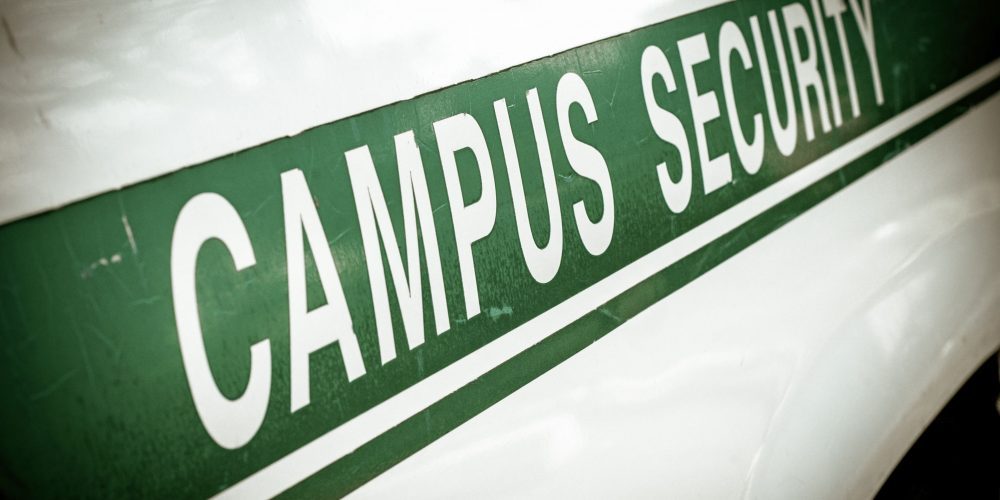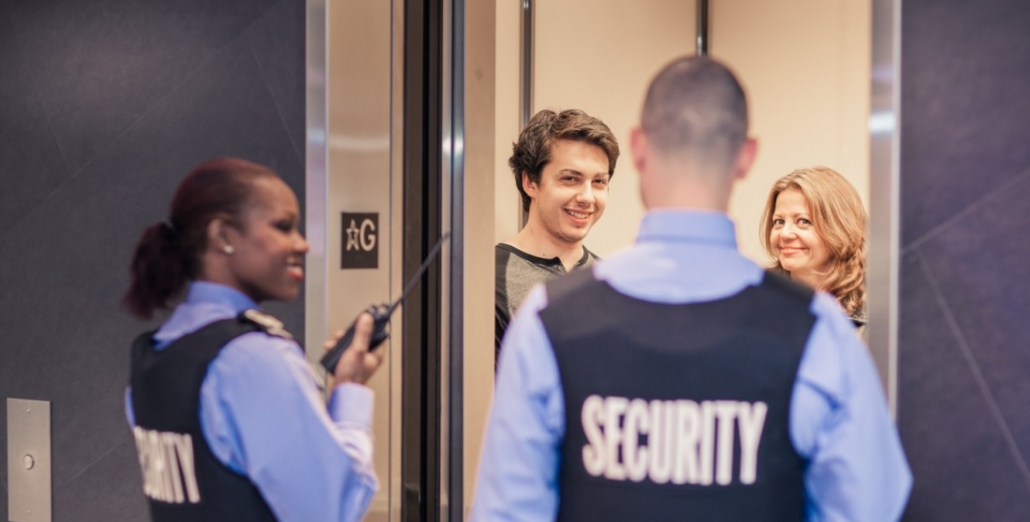When most Canadian students venture off to college or university, on-campus security is one of the last things on their minds. Studying, gaining the skills to build a meaningful career, and developing important social networks and potential future business contacts—not to mention the odd party here are there—tend to top their priority list.
That’s why it’s incumbent on the administrators and managers of post-secondary institutions to take security seriously, even if their students don’t. While most Canadian campuses are remarkably safe, incidents still occur. From a night of drinking gone awry to sexual assaults, students and staff can be particularly vulnerable targets, for a variety of reasons.
There are still many colleges and universities that haven’t embraced a proactive approach to campus security services.
The first has to do with age and inexperience. Most students are relatively young, and many are living away from home for the first time—in some cases in a large, far-away town or city. They don’t necessarily fully understand or address the risks before them. Being ‘street smart’ is a skill learned over time through experience. Second, would-be predators often gravitate towards campuses simply due to the prevalence of potential targets. Security threats abound.
The good news is that most colleges and universities do a good job protecting their students, even if gaps persist. In particular in the #MeToo era, with the increased focus on preventing sexual violence both on-campus and off, we need to do more to ensure that Canadians can live on campuses or attend classes in the safest environment possible.
At Wincon Security, we’ve been providing on-campus security services for the entirety of our 25-year history. Our systems continue to evolve to include the newest and most effective security techniques, while our embrace of technology as an integrated solutions provider has allowed us to introduce cutting-edge equipment to the benefit of our post-secondary partners.

There are still many colleges and universities, however, that haven’t embraced a proactive, comprehensive approach to security. If yours falls into that category, here are four steps you should take now to better secure your campus:
Set smart policies—Each campus and student body are different, so a one-size-fits-all security approach is bound to fail. Customize your strategy to suit everything from your collegiate culture to geographic realities. If yours is a sprawling campus that hasn’t yet introduced a buddy system where students (or student volunteers) are made available to walk their peers to and from class at nighttime, consider that simple policy change an important and simple first step to improving campus security services. In addition, take the time to review policies for on-campus alcohol consumption—perhaps limiting the duration of sanctioned parties or events, for example—which can be a common cause of security-related challenges. Whatever the tactics that work best in your particular circumstance, save the theoretical discussions for a philosophy class and take action now to develop and implement effective, practical policies that address your school’s unique needs.
Improve on-campus lighting and landscaping—This is a tactic that any commercial or residential property owner can leverage, but it’s one that’s particularly important for universities and colleges. Put simply, dark places overgrown with foliage are the perfect hiding spot for nefarious characters. By trimming hedges back and creating clear sightlines, security professionals have a much better chance of catching bad guys before they can cause harm to students and faculty. While improved LED lighting delivers illuminating security benefits, it also gives an aesthetic boost to a gloomy campus. In other words, it’s a worthwhile investment in a variety of ways.
Leverage technology—From high-tech cameras to advanced biometrics, many colleges and universities have already made significant investments in the latest and greatest security technologies. But more can be done to ensure safety. We’ve seen organizations glean major benefits from the introduction of tools such as facial recognition software to help identify criminals caught on camera after an incident has occurred. We’ve also seen schools tap advanced artificial intelligence algorithms to highlight areas of potential risk. Some schools are even using drones and robots to patrol campuses. All of these tools cost money to introduce, of course, so if they haven’t already, safety-conscious institutions should start budgeting now to upgrade their security infrastructure.
Hire trained staff—Whether your college or university hires and manages its own security staff or outsources the task to a third-party security provider, it’s imperative that security personnel are trained and experienced in the unique aspects of protecting a campus, both inside and outside of its many buildings. Look to hire a security firm with a comprehensive training program and ask about its employee turnover rates. While staff churn is high in the security business, if the firm admits that it turns over most of its staff every year, it can be a sign of mismanagement and could pose business service continuity challenges. In addition, having trained security staff will help bolster a shared culture of safety where students can rest easy knowing that those assigned to ensure their protection not only understand the importance of their role but are equipped to do the job right.
Security tips to help students stay safe while living off-campus
As September and back-to-school season nears, a whole new crop of Ontario students is getting ready to head off to their first year of college or university. As we outline below, most will be overwhelmed (in a good way) as they immerse themselves in academic life, meet new friends, experience new ideas, and for many, adjust to life in a new city or town where they might be living away from home for the first time.
It can be both an exciting and challenging time for young adults, not to mention their anxious parents. As we noted earlier, many of these students will also experience security threats that they haven’t yet faced in their young lives. That’s why it’s so important for post-secondary institutions to educate students on the basics of on-campus security, helping to keep them informed and vigilant while the school takes necessary steps in the background to ensure their safety—everything from maintaining ample campus security patrols to installing advanced keycard and camera systems across campus facilities.
We highly recommend installing a security system to protect any off-campus residence.
Off-campus migration after the first year
But after that first year of on-campus living, many students will relocate off-campus in search of cheaper rent, or because their school simply lacks the space to house its entire student body beyond their frosh year. Whatever the motivation, that move invites new challenges on the security front. The reason, as many who have lived off-campus, will attest, is that affordable accommodation options tend to be lacking when it comes to security. Some rental apartments or houses barely have adequate plumbing, let alone effective security systems.
That’s why it’s so important that students (and potentially parents, who may be helping them acquire off-campus accommodation) look for housing with adequate security features in place. Do the locks on the main entry doorways work? Are the locks on the back-patio doors functional? Is the residence in a decent neighbourhood, tucked away from potentially problematic areas where unsavoury characters might be up to no good? These are all basic, yet important, considerations.
Another is supplemental security infrastructure. We would highly recommend installing a security system to protect any off-campus residence if one isn’t already in place. Residential security systems are relatively inexpensive nowadays and provide peace of mind, assuring residents that if an intruder enters the premises, help will soon be on the way.

Living off-campus with friends to help alleviate security concerns
Most students will also look to share a house or an apartment with friends. This is a great idea to help offset costs and can also help bolster their shared security. That can be as simple as splitting the cost of that security system or even developing its own safety protocol. If a roommate isn’t home by a specified time, for example, their housemate(s) can send a quick text to ensure they’re OK. Students living off-campus can also create similar buddy systems to the ones offered on campuses, where security guards will walk students to and from class at night. Roommates (or other friends living off-campus) can pair up when possible to ensure they all make it to and from class safely.
Also, set rules as to who gets to visit the house or apartment. It’s one thing to keep bad guys out of your place, but it’s entirely more challenging to kick them out if they’ve been invited to pay a visit in the first place.
Parents can be part of the off-campus security services team
Of course, parents can also get involved in the process. Just because your kids live far away doesn’t mean you can’t check in from time to time, ensuring your child’s safety with a quick text or message on a preferred messaging platform. It also gives you an excuse to connect with the kids you might already be missing! Yes, empty-nesters, that happens more than you may expect.
Perhaps most importantly, ensuring the safety and security of students living off-campus requires education (and constant reminders). Many of these students are teenagers finding their way into the world. Everything is new and awe-inspiring. They sometimes take risks that are ridiculous in hindsight but make perfect sense at the time. As such, they need to be reminded that vigilance is a 24-hour consideration. Making smart decisions, avoiding dark alleyways and poorly-lit areas, bypassing questionable neighbourhoods and having a charged cell phone on hand at all times are just a few of the many simple, common-sense steps they can deploy at any time. They also happen to be basic lessons they can carry through life.
Living off-campus is a fun experience

